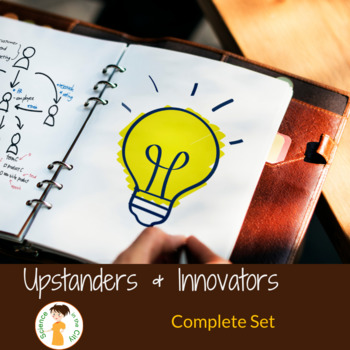Science Says: Who am I?
In 2014, Nicole Kidman, Mark Strong, and Colin Firth kept the audience on the edge of their seats in the thriller Before I Go To Sleep. Every morning, the character played by Kidman experiences a fresh start. She wakes up, not knowing where she is or who she is with. Her husband explains that she has suffered extreme brain damage in an accident several years earlier that left her unable to process any memory from the past twenty years of her life. For the rest of the day, the wife records her thoughts on a camera, which she consults in the morning with the help of her neuropsychologist. The thriller then evolves and unravels the mysterious accident that has led her to sustain a life-changing injury.If we ignore the thriller element for a moment, the story of Nicole Kidman’s character is fascinating. Every morning, she can get to explore who she is. How many of us have been given such an opportunity to indulge in self-exploration? The truth is that not many people would be able to tell you who they are as clearly as the movie – which is also a book – projects. Answering the question of who you are can be tricky. The quest for an answer is enough to throw anybody into a profound identity crisis. Except if you rely on science. Science, as it happens, can reveal a lot about yourself. Here’s how it works:
I am the person who can
More and more proud adults are showing off their STEM roots. Science, technology, engineering and math programs have become a priority all around the country as too few students are choosing to pursue degrees in these fields. As a result, teachers are constantly looking for ways to attract new students. Thankfully, public opinion has gradually warmed up to the idea of STEM. Many suggest that TV shows such as the Big Bang Theory or Sherlock have helped many young people to make peace with science. STEM role models have also become more vocal, giving the science community a strong and engaging voice. In conclusion, young girls and boys get to meet a variety of mentors and industry leaders who come from a scientific background. The message is the same everywhere; the STEM community is stronger together. For many, embracing STEM studies turn you into a do-er. You become the person who can send rockets to the moon, or who can find a new dinosaur species. You are the name the story will remember because you’re the one who made it happen.I am the descendant of someone great
Everybody loves looking through old family albums. Here’s a picture of grandma. Here’s your great-great-uncle you’ve never met. It’s always exciting to look through the black and white faces from the past and trying to find similarities. Do you have that person’s nose or this one’s eyes? Finding out who you are is always about knowing where you come from. Not everyone is keen on building their genealogical tree by themselves – it’s hard work, and it’s not always rewarding research. However, some specialists can take the pain out of thorough genealogy research for you. Finding relatives to an individual who has passed away is sometimes the only way for solicitors to discover unexpected beneficiaries. A genetic test could let you learn more about your family, and therefore about yourself too.Pexels - CC0 License
My genes dictate what I can eat
While we’re in the field of genetics, it’s a good idea to learn the lessons that DNA can teach about your body and needs. There are currently plenty of tests available that can let you know more about your dietary requirements based on your DNA patterns. The science is exact, however, if you want reliable results you should probably wait until the off-the-counter tests become more performant. Nevertheless, the human genome can reveal a lot about your health. You are maybe a lactose-intolerant person who didn’t know about their condition. Or your tendency to overeat could be marked by your genes. Knowing more about your DNA helps you to become the best you can be.Maths guides me through my identity crisis
Philosophers argue that the best way to address an identity crisis is to support your reasoning with maths. Indeed, a philosophical quest can’t rely on intuition. Instead, mathematics becomes the ultimately philosophical language that navigates through logic to the most appropriate answer. To pursue a rational debate or self-introspection, you need to be able to engage ideas logically and rigorously until you can confirm or reject your assumptions. In other words, brilliant philosophers are mathematicians.Pexels - CC0 License
Am I the result of a complex human genome that defines how my body reacts? Am I the person who discovers a new dinosaur? Or am I the person whose distant cousin made a fortune? I could be all of these, and only philosophy can guide me to the truth. Science answers the darkest identity crisis for you.
Students see science as so abstract, and distant from their lives, but this is a different way to take a look at the role science plays in defining who we are, and really grabbing kids attentions. Who am I? could be a great ongoing theme throughout the year!









